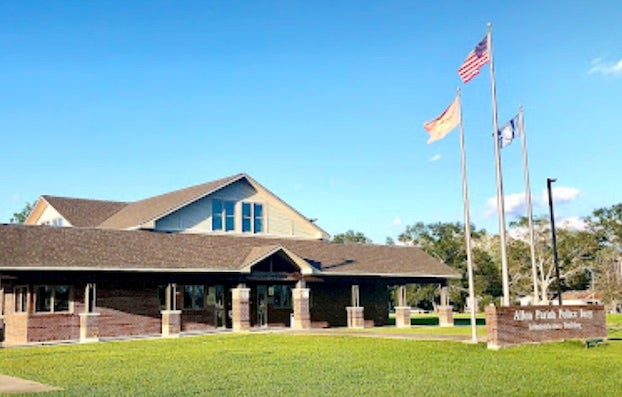Public hearings planned in Allen on proposed carbon capture and sequestration projects
Published 9:59 am Wednesday, January 8, 2025

- Allen Parish Police Jury
A series of public hearings are being planned in Allen Parish to help residents better understand the potential risks and benefits of proposed carbon capture and sequestration projects and lease agreements.
The first meeting will be held at 6 p.m. Monday, Jan. 13, at the Allen Parish Police Jury Office, 602 Court St. in Oberlin.
“I still feel like there are so many people in our parish that are just unaware of what is going on and the risks that these projects are bringing,” Police Juror Roland Hollins said. “Some of them say it’s a generational opportunity, but it’s also generational risks and that’s what we have to account for and we need our legislators to help with.”
Members of the newly formed Louisiana CO2 Alliance are pushing for better regulations and more safety measures for the projects, he said. The Alliance includes representatives from Allen, Vernon, Beauregard and Jeff Davis parishes with endorsements from the town of Kinder and Livingston Parish.
“It is very important to the Alliance that we get these very important bills on safety, mitigation and liability and perhaps alternate water sources and benefits passed,” Hollins said. “If we are going to be forced to have these projects in our areas, we definitely need benefits.”
Parish Administrator Jacob Dillehay said the parish currently has three Class V stratigraphic test well permit applications related to the CO2 sequestration projects.
Permitting is done through the Louisiana Department of Energy and Natural Resources.
The Class V wells are test wells only and not injection wells, he said. A Class VI well permit is required to inject CO2.
Currently no Class VI well permits have been issued in Louisiana and there are no active CO2 sequestration wells, according to the Department of Energy and Natural Resources website.
In Allen Parish, Oxy (Occidental) has completed its Class V test well only and is not actively injecting CO2, according to Dillehay. The company is in the process of acquiring a Class VI well permit to begin injection.
Exxon also has two Class V permits for test wells under review and have yet to drill either test well, Dillehay said.
Hollins said the public meetings will be a chance for the public to hear more about the proposed projects, get information on lease agreements and ensure transparency.
“It’s a chance for the public to come and hear what phase these companies are in and to get information on the (land) leases that are being offered,” Hollins said.
The companies recently began visiting residents to lease their property without notifying the police jury, despite its request to be informed of all activities in advance, Hollins said.
A second hearing will be held next month to discuss the findings of a risk assessment study. A date for the hearing has not been set, but will be announced, Hollins said.
Professional geologist Michael Simms and Environmental Scientist Gary Snellgrove of Gulf Engineers and Consultants of Baton Rouge were hired in August to conduct an independent environmental impact study and public health risk assessment of the effects of CO2 projects.
Hollins is concerned that many residents in Allen and surrounding parishes do not know about or fully understand the risks proposed CO2 projects have on the area.
The biggest concern for most is the effect and potential risks of the CO2 projects on groundwater aquifer locations, including the Chicot Aquifer, which provides 48 percent of the state’s groundwater.
Eminent domain laws have significantly reduced local government authority and citizen rights, according to Hollins.
Hollins said the meetings will help the Alliance gather information, inform the public and create a collective voice influencing legislators to provide better safeguards, mitigation measures, and benefits for communities and to protect the state’s drinking water supply.
Hollins said more safety measures and procedures need to be in place, along with more options to provide mitigation and benefits to at risk parishes.
“Eminent domain took the people’s rights away,” he said. “We are trying to give them a place to speak out, be heard and address their concerns and we need them to support us in this next session because it matters if you have people behind you when you go deal with the big lobby and Baton Rouge.”
Hollins said the 2025 legislative session will be the group’s last opportunity to get important bills related to CO2 projects passed, focusing on policies, notifications, alerts and training for first responders. The group is also seeking to remove a $10 million liability cap on CO2 companies.
“If we have a $40 million problem, who is going to pay for that other $30 million,” Hollins questioned. “If you are going to force your way in here with eminent domain, then there shouldn’t be a cap. We’ve got to protect our people the best way we can.”
Hollins encourages anyone who is interested in more information to join the Louisiana CO2 Alliance at their website or on Facebook.
“We are trying to make sure that every citizen in our region and state has an opportunity to have a voice and they can have that voice through this CO2 Alliance,” Hollins said.
n
Online: louisianaco2alliance.org





